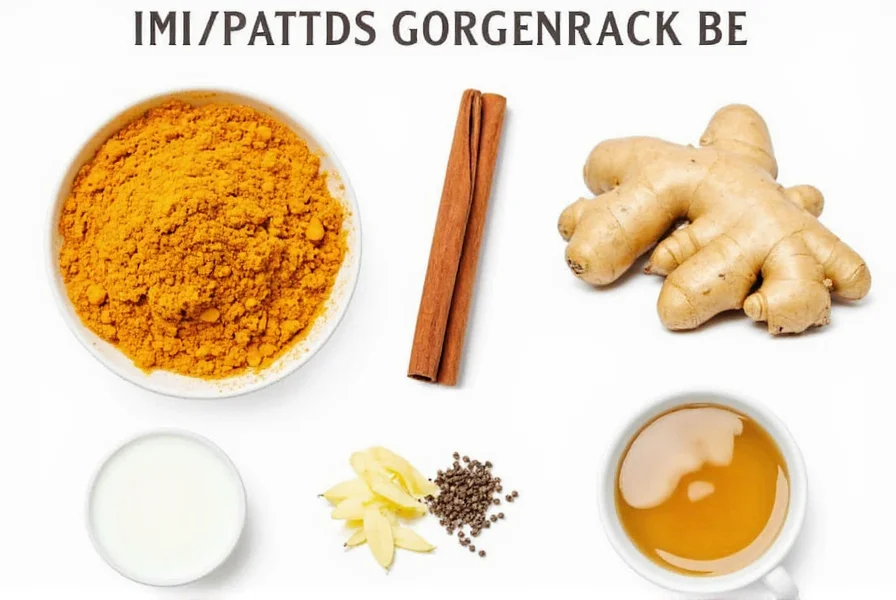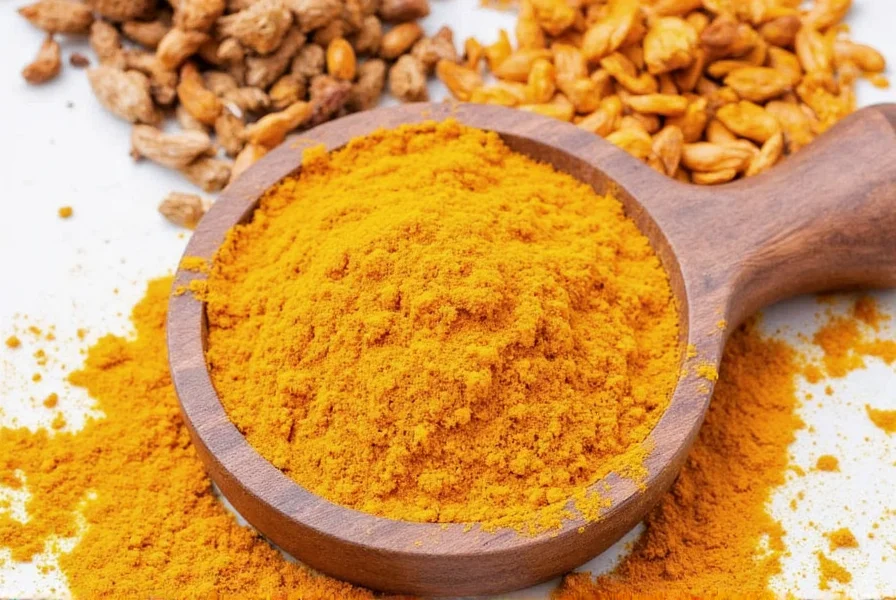For centuries, turmeric has been revered in traditional medicine systems, but modern science has begun validating many of its purported health benefits. This golden spice, derived from the Curcuma longa plant's rhizome, contains curcuminoids—primarily curcumin—which account for most of its therapeutic properties. Understanding which benefits have strong scientific backing versus those requiring further research is essential for making informed decisions about incorporating turmeric into your wellness routine.
The Science Behind Turmeric's Active Compound
Curcumin constitutes about 2-8% of most turmeric preparations and represents the primary bioactive component responsible for turmeric's health effects. This polyphenol demonstrates remarkable biological activity, though it faces challenges with bioavailability. When consumed alone, curcumin has poor absorption, rapid metabolism, and quick elimination from the body. This explains why traditional preparations often combine turmeric with black pepper (containing piperine), which can enhance curcumin absorption by up to 2,000%.

Key Evidence-Based Health Benefits of Turmeric
Research has identified several scientifically supported benefits of turmeric consumption. Let's examine the most well-documented effects with appropriate context about the strength of evidence.
Powerful Anti-Inflammatory Properties
Chronic inflammation contributes to numerous modern diseases. Curcumin demonstrates significant anti-inflammatory effects by inhibiting multiple molecules involved in inflammation pathways, including NF-kB, cytokines, and enzymes like COX-2. A comprehensive review published in Drugs in R&D concluded that curcumin's anti-inflammatory potency compares favorably with certain anti-inflammatory medications, but without their adverse side effects. This makes turmeric particularly valuable for managing conditions where inflammation plays a key role.
Antioxidant Capacity and Oxidative Stress Reduction
Oxidative damage contributes to aging and various diseases. Curcumin functions as both a direct antioxidant and a booster of the body's own antioxidant enzymes. Research in Advances in Experimental Medicine and Biology demonstrates that curcumin neutralizes free radicals while stimulating activity of antioxidant enzymes like superoxide dismutase and catalase. This dual mechanism provides comprehensive protection against oxidative stress throughout the body.
| Benefit Category | Scientific Evidence Level | Recommended Daily Dose | Timeframe for Noticeable Effects |
|---|---|---|---|
| Anti-inflammatory effects | Strong clinical evidence | 500-1,500 mg curcumin | 2-4 weeks |
| Joint pain relief | Good clinical support | 1,000 mg curcumin | 4-8 weeks |
| Cognitive support | Promising preliminary research | 500-1,000 mg curcumin | 3-6 months |
| Cardiovascular protection | Moderate clinical evidence | 500-1,500 mg curcumin | 8-12 weeks |
Joint Health and Arthritis Management
Multiple clinical trials support turmeric's effectiveness for joint conditions. A study in the Journal of Medicinal Food found that 1,000 mg daily of Meriva® (a curcumin-phospholipid complex) provided significant improvement in osteoarthritis symptoms compared to placebo. Another trial published in Phytotherapy Research demonstrated that curcumin was as effective as diclofenac sodium for reducing pain and swelling in rheumatoid arthritis patients, but with better safety profile. These findings position turmeric as a valuable complementary approach for managing joint discomfort.
Cognitive Function and Brain Health
Emerging research suggests curcumin may support brain health through multiple mechanisms. It increases levels of brain-derived neurotrophic factor (BDNF), a growth hormone that functions in the brain. Low levels of BDNF are associated with depression and Alzheimer's disease. A randomized controlled trial in the American Journal of Geriatric Psychiatry found that curcumin supplementation improved memory and attention in non-demented adults over 18 months. While more research is needed, these preliminary findings are promising for cognitive maintenance.
Cardiovascular Protection Mechanisms
Turmeric appears to benefit heart health through several pathways. Research indicates curcumin improves endothelial function (the lining of blood vessels), which is crucial for regulating blood pressure and clotting. A study in Nutrition Research showed that curcumin supplementation improved endothelial function as effectively as exercise in postmenopausal women. Additionally, curcumin's anti-inflammatory and antioxidant properties help protect against atherosclerosis development.
Practical Considerations for Turmeric Consumption
To maximize the health benefits of turmeric while ensuring safety, several practical factors deserve attention.
Optimizing Bioavailability
As mentioned earlier, curcumin's poor bioavailability limits its effectiveness when consumed alone. The most effective strategies include:
- Combining with black pepper (containing 5-10 mg piperine)
- Consuming with healthy fats (curcumin is fat-soluble)
- Choosing formulations with enhanced absorption (phospholipid complexes, nanoparticles)
- Heating turmeric slightly in cooking (increases solubility)
Dosage Guidelines and Safety
Most clinical studies use standardized curcumin extracts providing 500-2,000 mg daily. For general wellness, 500 mg once or twice daily typically suffices. Higher doses (1,500-2,000 mg) may be appropriate for specific conditions under professional guidance. Turmeric is generally safe at culinary doses, but high-dose supplementation may cause:
- Digestive upset in sensitive individuals
- Increased risk of bleeding when combined with blood thinners
- Potential gallbladder contractions (caution for those with gallstones)
Pregnant women should consult healthcare providers before using therapeutic doses. The World Health Organization considers 0-3 mg per kilogram of body weight daily as acceptable intake.

Incorporating Turmeric Into Your Diet
Beyond supplements, you can enjoy turmeric through various culinary applications:
- Golden milk: Warm milk (dairy or plant-based) with turmeric, cinnamon, ginger, and a pinch of black pepper
- Curries and stews: Add 1-2 teaspoons to dishes during cooking
- Smoothies: Blend ½ teaspoon with fruits, vegetables, and healthy fats
- Rice or grain dishes: Stir in during cooking for color and flavor
- Roasted vegetables: Toss with olive oil and turmeric before baking
Setting Realistic Expectations About Turmeric Benefits
While turmeric offers impressive health potential, maintaining realistic expectations is crucial. Turmeric works best as part of a comprehensive wellness approach rather than a standalone solution. Effects typically develop gradually over weeks or months rather than immediately. Individual responses vary based on genetics, health status, and lifestyle factors. For specific medical conditions, turmeric should complement—not replace—conventional treatments under professional supervision.
Conclusion: Integrating Turmeric Wisely
Turmeric represents one of nature's most extensively researched spices with compelling evidence supporting its anti-inflammatory, antioxidant, and various health-promoting properties. By understanding which benefits have strong scientific backing, optimizing absorption through proper preparation, and maintaining realistic expectations, you can effectively incorporate this golden spice into your wellness routine. As with any supplement, consult with a healthcare provider before starting turmeric supplementation, especially if you have underlying health conditions or take medications.
Frequently Asked Questions
How long does it take to see benefits from turmeric?
Most people notice anti-inflammatory benefits within 2-4 weeks of consistent daily use at appropriate doses (500-1,500 mg of standardized curcumin with piperine). Joint pain relief may take 4-8 weeks, while cognitive benefits typically require 3-6 months of regular supplementation. Individual results vary based on health status, dosage, and formulation quality.
What's the best way to absorb turmeric effectively?
To maximize turmeric absorption, always combine it with black pepper (providing piperine) and a healthy fat source. Choose supplements containing 5-10 mg piperine per dose, or add ¼ teaspoon black pepper when using culinary turmeric. Consuming turmeric with meals containing fats like olive oil, avocado, or nuts significantly enhances curcumin absorption. Heating turmeric slightly during cooking also improves solubility.
Can turmeric interact with medications?
Yes, turmeric may interact with certain medications. It can enhance the effects of blood thinners like warfarin, potentially increasing bleeding risk. Turmeric might also interact with diabetes medications by lowering blood sugar further, and with drugs metabolized by the liver. If you take prescription medications, particularly blood thinners, diabetes drugs, or chemotherapy agents, consult your healthcare provider before starting turmeric supplementation.
Is turmeric safe for daily consumption?
Turmeric is generally safe for daily consumption at culinary doses (up to 1-3 grams of powder daily). For therapeutic supplementation, most studies use 500-2,000 mg of standardized curcumin extract daily. Long-term use of high doses may cause digestive discomfort in some individuals. The World Health Organization considers 0-3 mg of curcumin per kilogram of body weight daily as acceptable. Those with gallbladder issues, bleeding disorders, or who are pregnant should consult a healthcare provider before regular use.
What's the difference between turmeric and curcumin?
Turmeric is the spice derived from the Curcuma longa plant's rhizome, while curcumin is the primary bioactive compound within turmeric (making up about 2-8% of most turmeric preparations). Most health benefits attributed to turmeric come from curcumin and related curcuminoids. Supplements may contain whole turmeric powder or standardized curcumin extracts (typically 95% curcuminoids). For therapeutic effects, standardized curcumin extracts generally provide more consistent results than culinary turmeric alone due to higher concentration and better absorption formulations.











 浙公网安备
33010002000092号
浙公网安备
33010002000092号 浙B2-20120091-4
浙B2-20120091-4